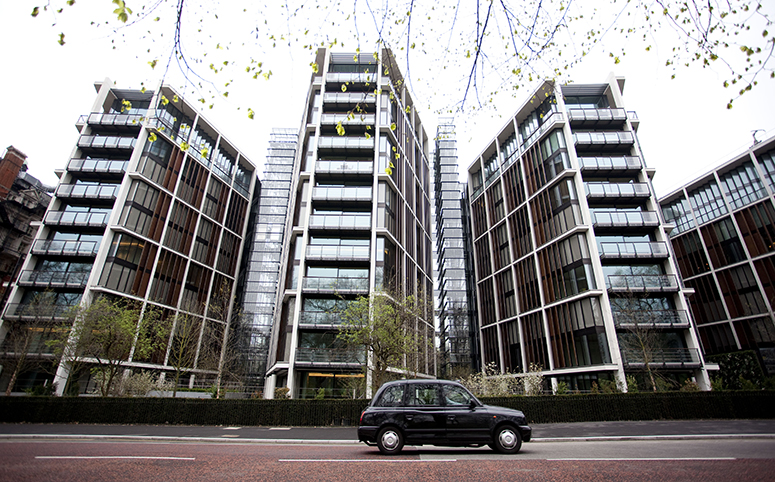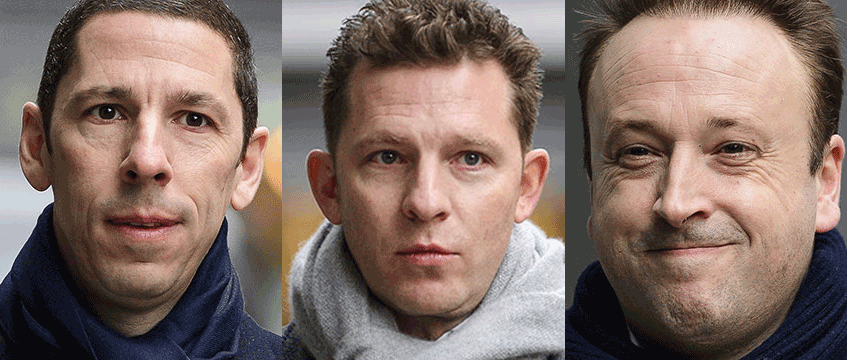PART FOUR: As the wait continues for the judgment on one of the most explosive cases of the year, EG looks at how the seven-month battle between Christian and Nick Candy and Mark Holyoake has unfurled.
As London’s civil court winds down for the summer, it’s looking increasingly unlikely that judge Mr Justice Nugee will give his decision in the dispute between Mark Holyoake and the Candy brothers before October. But the ruling on what the trial judge called “not a very attractive story” will almost certainly be worth the wait.
It was the final week of a trial that had been going on for the best part of two months. Roger Stewart QC, the lead barrister for Mark Holyoake, and Tim Lord QC, heading the team for Nick and Christian Candy, were, like every other day, laying into the reputations of each other’s client.
After a particularly hard-fought point from Stewart, the judge, Sir Christopher Nugee, addressed the elephant in the room.
“The evidence I have heard is not a very attractive story,” he said. “Both sides appear to lie when it suits their commercial interests.
“The court can’t ignore this,” he said. “I’m going to have to decide who lied when.” Then a pause. “It has to be said,” he added.
There was a brief silence before the lawyers got back to exchanging their shots.
This was never going to be a friendly fixture. The allegations at the heart of the case are altogether too nasty.
Mark Holyoake, a serial entrepreneur, claims high-profile property tycoons the Candy brothers threatened him and his family, and “coerced” him out of millions of pounds after they lent him £12m to buy Belgravia mansion Grosvenor Gardens House.
The allegations against the brothers include blackmail, duress, extortion and intimidation. Holyoake is seeking more than £100m in damages.
The Candy brothers strongly deny all his claims. They say his allegations of coercion are fabricated. They maintain that Holyoake was an unreliable creditor who lied to them from the start.
To make matters worse, Holyoake and Nick Candy were formerly good friends. Nick asked his brother Christian to lend Holyoake the £12m at the centre of the dispute. But, before too long, things had become much less amicable.
Holyoake claims that soon after the Candys lent him £12m to buy Grosvenor Gardens House they coerced him in to signing new loan agreements.
In his evidence before the court, he said Christian Candy told him he would “go nuclear” and “take a wrecking ball to his life”.
He also says Nick Candy told him his brother would sell the loan to Russian debt collectors who “would not think twice about seriously f***ing hurting you”.
Holyoake said at one point Christian Candy told him: “you need to think about your pregnant wife”.
The Candy brothers agree that they can be tough businessmen, but flatly deny that any threats were made against Holyoake or his family.
Indeed, as far as they are concerned, these allegations are “spiteful” attempts to slur them and their businesses.
“I am a businessman and a hard negotiator when I need to be,” Christian Candy testified, “but I would never resort to threats or illegal acts in order to complete a transaction”. He applied, he said, “legitimate, legal contractual pressure”.
Nick Candy, for his part, also said under oath that he “never threatened Mark in his life with physical violence”.
Usually in trials as long as this one, both sides start from polar opposites and before too long the outline of some sort of common ground begins to appear. Not in this case.
Also, it would be usual for a dispute that is essentially about an alleged unfair debt to remain focused on that debt. In that respect also, this trial deviated well away from the norm.
Both sides made wild allegations against each other. Holyoake’s side pushed the Candy brothers on their tax affairs and, in parallel with another famous property developer on the other side of the Atlantic, their links with Russia.
The Candys fought fire with fire, laying into Holyoake’s financial statements and track record in business.
At one point while on the witness stand, Nick Candy blurted out that he had heard Holyoake, while chief executive of a seafood importing business, had hired actors to staff a factory in China in order to mislead the Chinese authorities.
If there is any common thread or shade of grey, it could be said to be the one that Mr Justice Nugee identified in the closing days of the trial.
The Candys, for example, admit they misinformed Holyoake in an attempt to flush information out of him. They did this, they said, because they had reason to think they were dealing with a dishonest man.
Holyoake also accepts that at times he told the Candys what they wanted to hear, essentially playing for time.
The case is peppered with alleged lies, and the central allegations are so starkly put that middle ground is hard to find.
As a result, Mr Justice Nugee will be writing up his judgment with great care. He will most likely spend the rest of the summer unpicking the story he found so unattractive, and working out exactly who lied, and when.
Whatever he decides, this case, fought so hard and reported on so widely, has been an unwelcome experience for all concerned.
Nick Candy said as much to Nugee, rather colourfully, while giving evidence. “For the rest of my life, whatever happens” he said, “people are going to think — even if you find us completely innocent… there is going to be a slight smell, yes?”
HOW THE CANDYS BUILT THEIR EMPIRE

“I started with £6,000 in 1995. I take money very seriously,” said Nick Candy as he told the story on how the brothers Candy came to prominence, how they work together, and his own philosophy on property development.
It wasn’t quite rags to riches, more prep school in Epsom to penthouse in One Hyde Park, all stemming from the high cost of renting student digs in 1995.
“My brother was at King’s College London still studying,” he said. “I was at KPMG, soon to be a failed accountant… We were only in our early 20s [and we] wanted to get on the property ladder…
“The first flat we bought was for £122,000, with a £6,000 loan from my grandma and a 95% mortgage from the Bank of Wales… My dad guaranteed the mortgage… It was cheaper for my dad to guarantee the mortgage and pay the interest on the mortgage than pay rent in central London for my brother while he was at King’s College. And that’s how it started.
“The next flat I bought was for £236,000 in Roland Gardens (SW7) and we did it up and we lived in it.
“One year later we sold it on. It was a time in the market when the property prices were booming in London. You could buy a shed and the following day you could sell it for more money.”
This pattern continued for 10 years. In 2005, he said, he had made so much money developing properties with his brother that he decided to move to Monaco.
“We had developed around 50 properties and I had made substantial amounts of money. Tens and tens of millions. It probably wasn’t £100m, but I had made a substantial amount of money and I don’t shy away from the fact I went to Monaco… for tax reasons.”
The property development that made him this money was not, however, through Candy & Candy, the firm they are synonymous with. In fact, for some of its years of trading, Candy & Candy was booked as a loss-making business.
“We had done it though different vehicles, not through Candy & Candy,” he said. “From the accounts [Candy & Candy] hadn’t made substantial amounts of money. Candy & Candy is a design business and a branding business. And we do services like development management, interior design, interior architecture, marketing. We sometimes get involved in sales administrations, as we did on One Hyde Park.”
One Hyde Park, the Candy’s most famous development, achieved the highest price per square foot for London residential property, at up to £10,000 per sq ft.
By 2007, Christian Candy was no longer a director of Candy & Candy. Instead, he was running his own business, CPC Group. Nick Candy had become less interested in property development.
“We did developments to begin with together,” he said. But things changed. “I wanted to follow the branding and licensing model, like the Donald Trump model, and Christian wanted to do the building.
“And if you look today, what is Christian doing? He is still building. What am I doing? I am investing in tech, biotech, sports, media, telecommunications.
SEE ALSO:
■ Part 1: Combat by trial, the story so far
■ Part 2: Finding the truth in the lies











